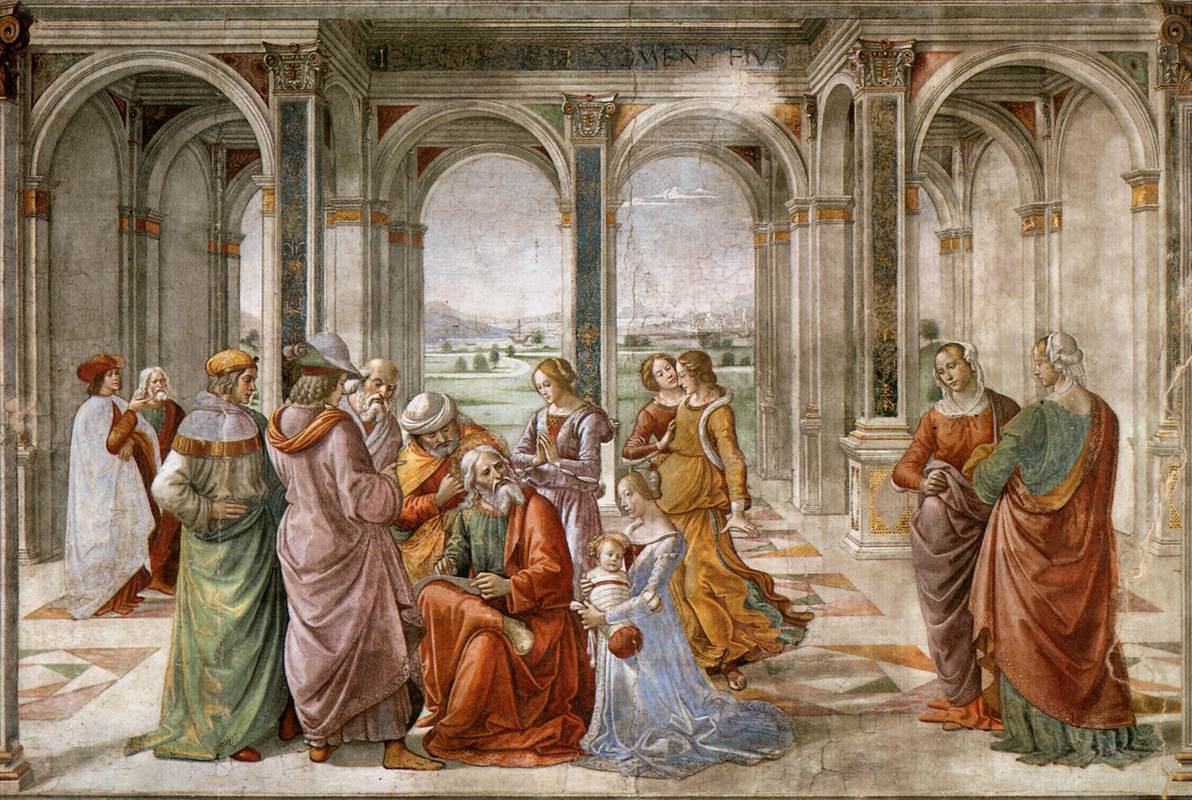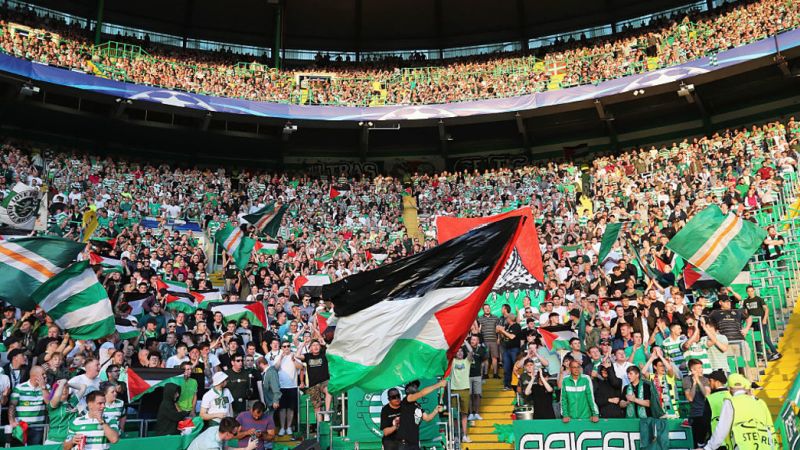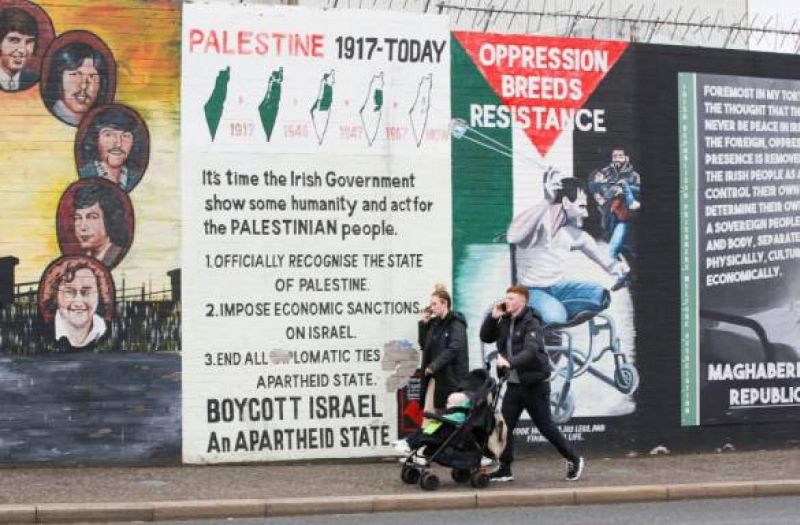Here are two articles I have copied from the media in order to highlight who are the friends and who are the enemies of Israel.
It would be right to generalise and say that the Bible divides these two opinions! Those who believe the Bible look with compassion upon the nation of Israel, the nation from which our blessed Saviour came and to which God has made great promises — which He will most surely keep.
The rejecters of the Bible, again speaking generally, are those arrayed against Israel.
I read this morning these words by Zacharias, the father of John the Baptist.
“Blessed be the Lord God of Israel; for he hath visited and redeemed his people, and hath raised up an horn of salvation for us in the house of his servant David; as he spake by the mouth of his holy prophets, which have been since the world began: that we should be saved from our enemies, and from the hand of all that hate us; to perform the mercy promised to our fathers, and to remember his holy covenant; the oath which he sware to our father Abraham, that he would grant unto us, that we being delivered out of the hand of our enemies might serve him without fear, in holiness and righteousness before him, all the days of our life,” Luke 1:68-75.

Fresco by Deomenico Ghirlandaio, Florence, between 1486 and 1490
The birth of John the Baptist was recognised by his father Zacharias, as another step forward in the great plan of God for His people Israel and for those of His elect amongst the Gentiles, and God’s eventual purpose which will enter upon its finalisation at the return of Christ.
Those who believe the Bible recognise the place in God’s purpose that the despised and hated nation of Israel has and they will ever look with sympathy upon that people, despite their present rejection of their True Messiah, the Lord Jesus Christ.
These two articles contain errors and, in the case of the first one, misunderstandings of Holy Scripture. Even so, they serve to set forth the division of mankind in these last times.
Sincerely in Christ’s name,
Ivan Foster
US evangelicals drive Republican support for Israel
BBC Report by
By Anthony Zurcher
North America correspondent
Republican support for Israel has been near monolithic since the 7 October attack by Hamas.
Conservatives argue the US is backing a close ally, standing up for the region’s only democracy and sending a message that terror against civilians will not be tolerated.
But there’s more to it than that.
Evangelical conservatives are a key part of the Republican party’s coalition, and these religious voters – and politicians – have a connection to the state of Israel that runs deep.
George Washington University religious scholar Christopher Rollston says: “There’s a strong sense within evangelicalism that the Jewish people are God’s people.
“And there’s a theological assumption that’s pretty pervasive within certain segments of evangelicalism that the establishment of the modern state of Israel was the fulfilment of biblical prophecy.”
The new Republican Speaker of the US House of Representatives, Mike Johnson, has strong evangelical ties.
The Louisiana congressman was one of a handful of politicians who addressed a crowd of 10,000 at a “March for Israel” event in Washington DC on Tuesday.
Quoting Israeli Prime Minister Benjamin Netanyahu, he called the conflict between Israel and Hamas “a fight between good and evil, between light and darkness, between civilisation and barbarism”.
He said demands for an Israeli ceasefire in Gaza were “outrageous”.
“It is my hope that this gathering today serves as a reminder to the entire world, but also to those within our own borders, that the United States stands proudly with Israel and the Jewish people forever,” he said.
Mr Johnson stood on a stage bedecked with dozens of Israeli and American flags, the US Capitol in the background. Two senior Democrats, Senate majority leader Chuck Schumer and House minority leader Hakeem Jeffries, joined him, along with Republican Senator Joni Ernst.
They raised their hands together and led the audience in a chant of “we stand with Israel”.
“There are few issues in Washington that could so easily bring together leaders of both parties in both chambers,” Mr Johnson said, “but the survival of the state of Israel unites us together and unites all Americans.”
The Democrats are divided, however. While the two congressional leaders, along with President Joe Biden, have been firm in their support for Israel following the attack, a growing number on the left are calling attention to Palestinian civilian casualties and condemning the Israeli military campaign.
With the exception of a handful of Republican politicians, however, dissent on the right has been missing.
When a standalone bill providing $14.3bn (£11.5bn) in US aid to Israel was introduced in the House of Representatives, only two Republicans – Marjorie Taylor Greene of Georgia and Thomas Massie of Kentucky – voted no.
Their isolated opposition is a far cry from the significant and growing number of Republicans who oppose continued US support for Ukraine, the world’s other current major international conflict.
The influence of an evangelical leader invited to speak towards the end of the March for Israel’s programme helps explain why Israel is treated differently by Republicans.
John Hagee is a Texas-based Christian minister and president of Christians United for Israel, which boasts 10 million members.
In 2008, he said the Holocaust was part of God’s plan to return Jews to Israel. The Republican presidential candidate at the time, John McCain, declined his endorsement in part because of those comments.
The organisers of Tuesday’s march, the Jewish Federations of North America and the Conference of Presidents of Major American Jewish Organizations, invited Mr Hagee to speak at their rally, however, as a part of a “voices of allies” segment. The organisers did not immediately respond to BBC requests for comment.
For his part, Mr Hagee was effusive in his support for Israel. He told the crowd that a line should be drawn uniting Christians and Jews and that there was no “middle” ground in the conflict between Israel and Hamas.
“We must all stand united with one voice and boldly declare over and over: Israel, you are not alone,” he said.
In his deep southern preacher drawl, he placed the fate of Israel squarely in a religious context.
“The God of Abraham, Isaac and Jacob guarantees Israel’s deliverance will come as proclaimed every year during Passover,” he said. “Israel is the apple of God’s eye. Israel is the shining city on the hill. God says of Israel, Israel is my firstborn son.”
For some evangelicals, however, the ties between their religion and the fate of Israel have a darker hue. And it’s where Mr Hagee’s more controversial views come into play.
In the End Days, a certain strain of Christian theology holds, the Jewish people will either convert to Christianity or perish in flames. It is a key step towards Armageddon that is then followed by 1,000 years of peace, according to this belief.
A Pew Research survey last year found 39% of Americans – including 63% of evangelicals – believe humanity is “living in the end times”.
And for the moment – on the stage in Washington on Tuesday and in the halls of Congress – the interests of Israel, Republicans and evangelicals are in alignment.
‘Victory to the resistance’ : Why Celtic fans protest against Israel
Copied from The Jewish Chronicle

As Celtic appeared in Spain this month to play Athletic Madrid, crowds of fans in the away end could be seen waved defiantly waving Palestinian flags.
The Scottish football club has long been associated with fervent opposition to Israel, and this animosity has reached new heights since Hamas attacked the Jewish state on October 7, but why does the club have an affinity with the Palestine cause?
Celtic supporters show their support with Palestine flags during the Cinch Scottish Premiership match between Heart of Midlothian and Celtic FC at Tynecastle Park on October 22, 2023 in Edinburgh, Scotland. (Photo by Ian MacNicol/Getty Images)
During games immediately following the terror group’s invasion, supporters brandished banners reading “Free Palestine” and “Victory to the Resistance”.
In response, Celtic banned the Green Brigade – a hardcore group of fans seated in one corner of the stadium who lead protests, chants, and flag displays – from home matches.
It might seem incongruent that supporters of a Scottish Premiership team would rally passionately against the state of Israel, which is some 4,000km from Glasgow.
The recent spat, however, is just the latest in a long history of Celtic support for the Palestinian cause.
The club, founded by Irish Catholic immigrants in 1887, forms one-half of the Old Firm alongside their traditionally right-wing city rivals, Rangers. Between them, the pair have won all but a handful of Scottish League titles.
‘End Zionism’: Celtic fans protest for Palestine during the 2018 Scottish Cup Final (Photo by Mark Runnacles/Getty Images)
As Rangers fanbase is overwhelmingly Protestant, the footballing rivalry with Celtic overlies a deeper sectarian division that has occasionally erupted into religious violence.
Celtic has also long been associated with support for Irish nationalism, which has intertwined with the backing of left-wing social movements.

In the late 2000s, Celtic fans began waving Palestinian flags and in a knee-jerk response Rangers supporters began to display Israeli flags.
At the forefront of this solidarity were The Green Brigades, who have also demonstrated against the club putting poppies on players’ shirts for Remembrance Day, supported Black Lives Matter, and branded the Scottish Conservative leader and part-time referee Douglas Ross a “c***”.
In 2016, the Brigade raised £130,000 in an online campaign for medical aid for Palestinians and to create a football academy in Bethlehem.
In a recent statement, Celtic said they had now suspended the tickets of Green Brigade fans over their “repeated incidents of unacceptable conduct”.
Responding to the ban, the ultra group said: “Despite disingenuous claims, we have absolutely no doubt that these sanctions are motivated by a desire to quash political expression within the Celtic support, specifically in relation to Palestine at this time.
“In spite of this, and any further obstruction, we once again encourage fans to courageously fly the flag for Palestine.”
Speaking to the JC, one Jewish Celtic fan who has been attending games for 30 years, said that some supporters from the community are “definitely questioning” their relationship to the club after seeing banners expressing resistance.
The man, who did not wish to be named, said: “It’s not that they feel unsafe. It’s not a hotbed of antisemitism.”
Green Brigade members, he added, would claim not to support Hamas if asked.
“I suspect deep down they know they got [banners supporting the ‘Palestinian resistance’] wrong.
“They are probably not what you think they are. They’re all sort of Marxist intellectuals who spend time in Marxist reading circles. They’re definitely not thugs, not football hooligans.”
He added: “If they meet a Jew one on one they’re not going to treat them any differently.
“They’ve got a blind spot, they see [Palestine activism] as punching up rather than punching down. They believe all the settler-colonial stuff about Israel.”
Despite the anti-Israel hostility, he said, there are probably still more Jews in Glasgow supporting Celtic than Rangers.
Far-right fans of Rangers – some of whom recently flew a Nazi Totenkopf flag – are more “scary” for the Scottish Jewish community, he claimed.
Jewish leaders have meanwhile called for displays of both Palestinian and Israeli flags to end.
Speaking to the JTA last year, Paul Edlin of the Glasgow Jewish Representative Council said: “We want to see it stopped… The clubs don’t like it, but they won’t stop it from happening.
“There is no reason to fly the flags of countries at football matches for any reason — neither Israeli nor Palestinian.”
In a statement, Celtic said: “Celtic is a football club and not a political organisation. One of our core values from inception is to be open to all regardless of race, colour, politics or creed.
“That is why the club has always made clear that political messages and banners are not welcome at Celtic Park, or any match involving Celtic.
“At a time of loss and suffering for many, it is entirely inappropriate for any group of individuals to use Celtic Park as a vehicle for such messages.
“We call on all supporters, regardless of their personal views, to unite in backing our players and the club while respecting the rights and beliefs of others; particularly those whose lives are affected by violence and hatred.”
